May 31, 1981 marked not only the burning of the Jaffna Public Library, but the beginning of a week-long rampage of violence by Sri Lankan security forces and Sinhala mobs which devastated the peninsula.
The violence and devastation was largely ignored by the island’s mainstream press, and even in Tamil Nadu reports did not reach the media for many days, as a result of the shutdown of press throughout the North and general censorship imposed by the Sri Lankan government. Notably, the office and presses of Eelanadu, a prolific Tamil daily coming out of Jaffna since 1959, were burnt to the ground by the mobs. The famous Poobalasingam Book depot was also burnt.
Looking through archives of Tamil and English language newspapers return large gaps in most publications around the time of the pogrom.
Today we republish snippets of press coverage published days and even weeks after the atrocity.
All newspaper clippings from Noolaham.
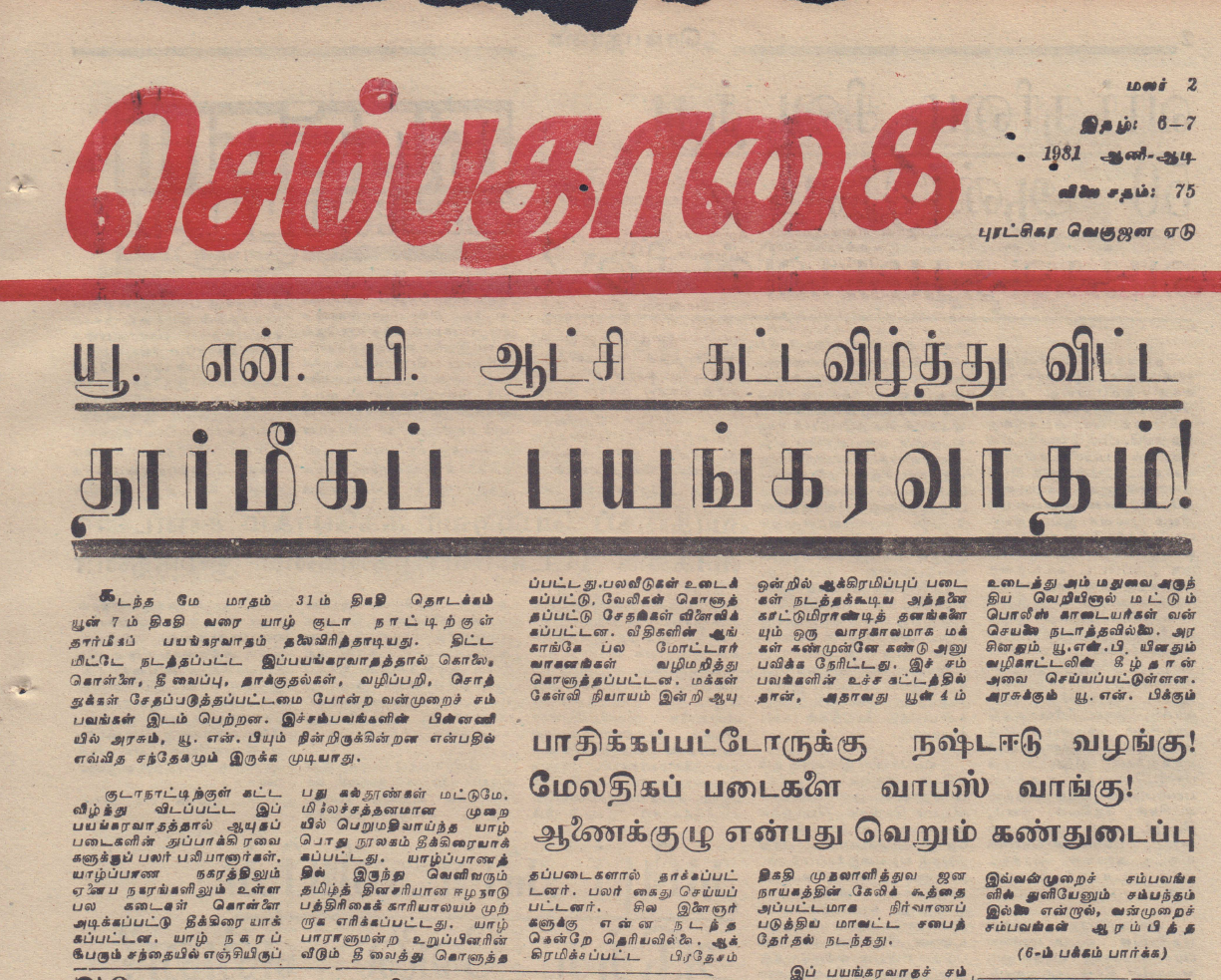
‘Terrorism unleashed by the UNP regime’
Between May 31 and June 7, terrorism rampaged through the Jaffna peninsula. Violence such as murder, looting, arson, assault, mugging, vandalism took place as a result of this well-planned terrorism. There cannot be any doubt that the State and the UNP was behind these events.
As a result of this terrorism unleashed on the peninsula, many lost their lives to the ammunition rounds of the armed forces. In Jaffna town and surrounding towns, businesses were looted and set alight. Only stone pillars have survived in the Jaffna central market. The invaluable Jaffna public library was barbarically set alight. The office of the Jaffna daily newspaper Eelanadu was completely burnt. A Jaffna parliamentarian’s house was also set on fire. Many houses were broken, their fences burnt, and the buildings damaged.
Several motor vehicles were stopped on the roads and burned. People were assaulted by armed forces without rhyme or reason. Many were arrested. The fates of some youths are completely unknown. Every barbaric act that would be committed by occupying forces on an occupied land took place for a week, right in front of the people’s eyes. At the peak of these events, June 4, a district council election took place which completely exposed the farce of capitalist democracy.
Who was responsible for these acts of terror? The regime is trying to show it to be the actions of a few rogue policemen. Tamil leaders are talking as if they will accept this. But this cannot be the truth. The people believe that these events were well planned and executed by the highest levels of the government and the UNP. The armed forces and goons imported from outside were used to carry out these acts of terrorism. Some drunk police thugs who smashed and looted a liquor store did not carry out all this violence, as some have claimed.
These events were done with the guidance of the State and the UNP. If the State or the UNP did not have a drop of involvement in these events, they could have put an end to the violence on the day that it started. The people must thoroughly understand what it means that the chaos of the armed forces could burn through Jaffna while senior officials who implement government orders, commanders who control the armed forces, and some other ministers were all stationed in Jaffna itself.
From Sempathakai – Monthly paper of the Ilankai Communist Party (Left)
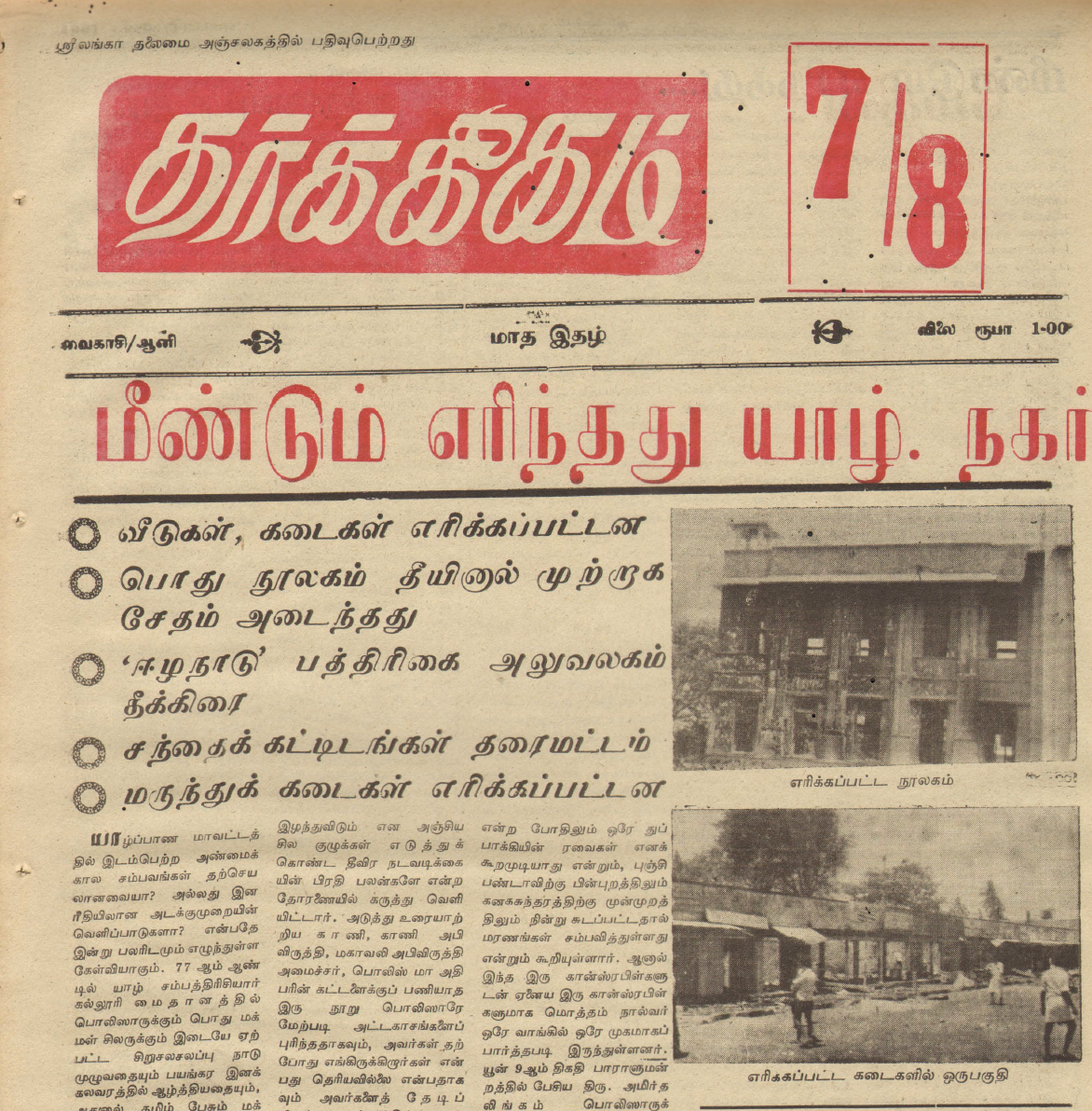
‘Jaffna Town burns again’
- Homes and shops burnt
- Public library completely damaged by fire
- ‘Eelanadu’ newspaper office set on fire
- Pharmacies burnt
Image captions: Top - burnt library; bottom - a section of burnt businesses
From Tharkkeekam – monthly paper of the Eelam Revolutionary Organisation of Students (EROS)
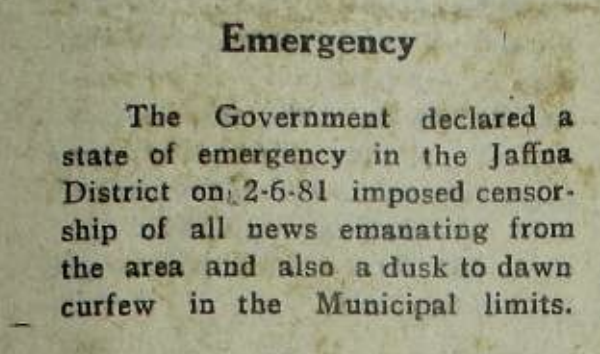
From The Morning Star – a Jaffna based Christian weekly
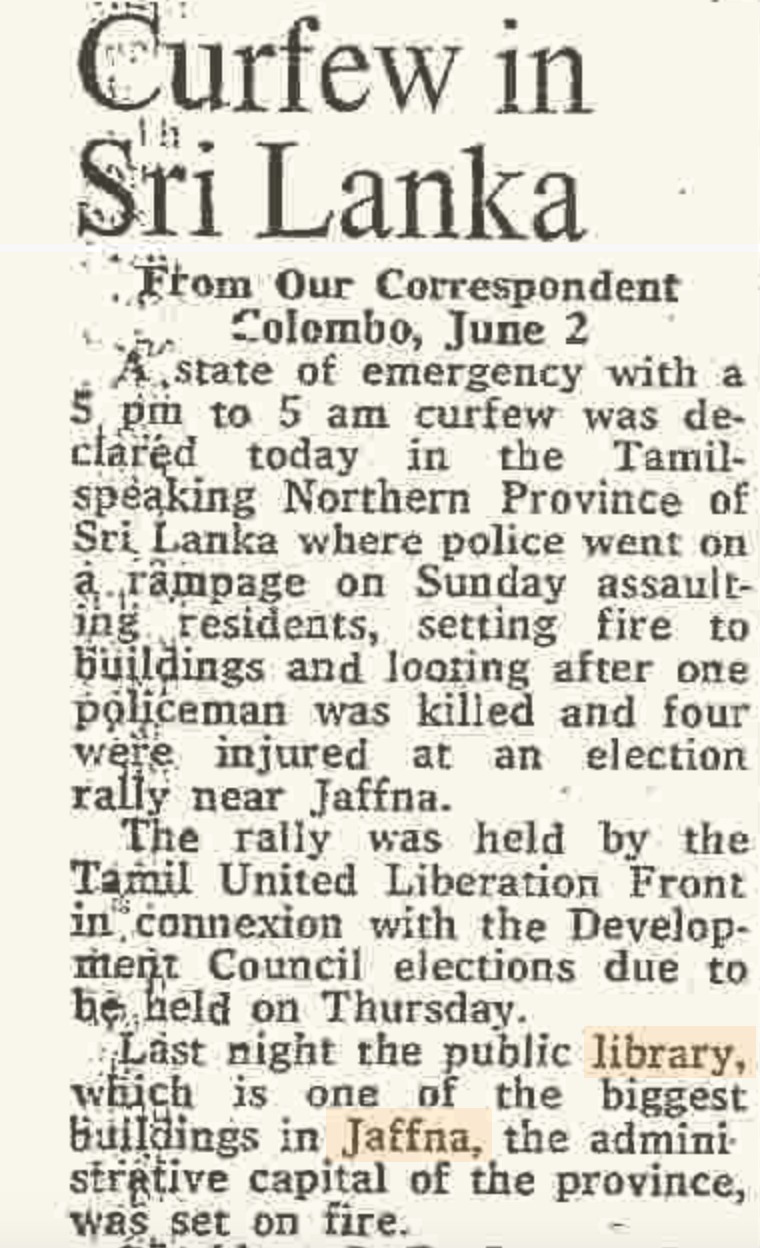
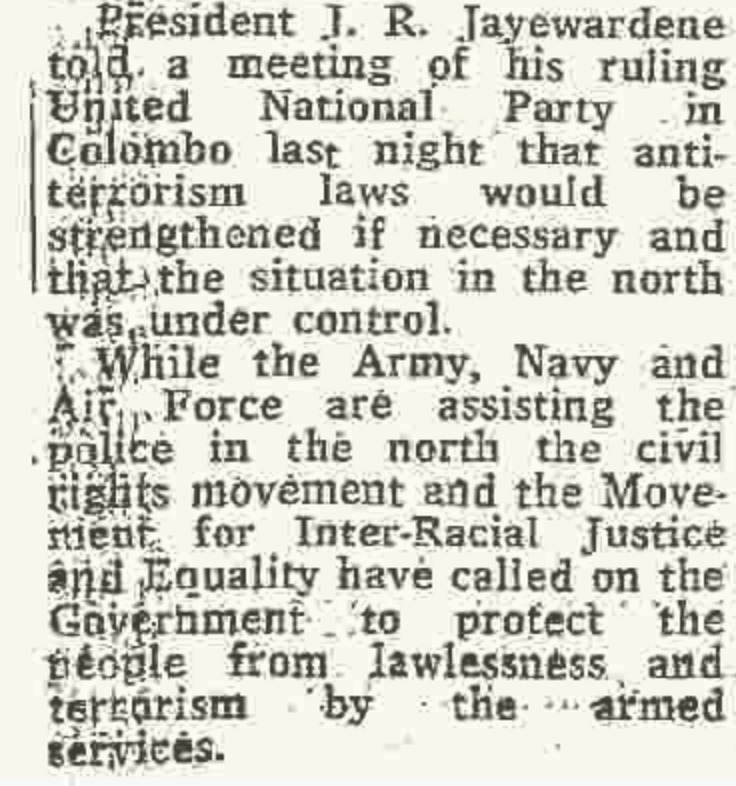
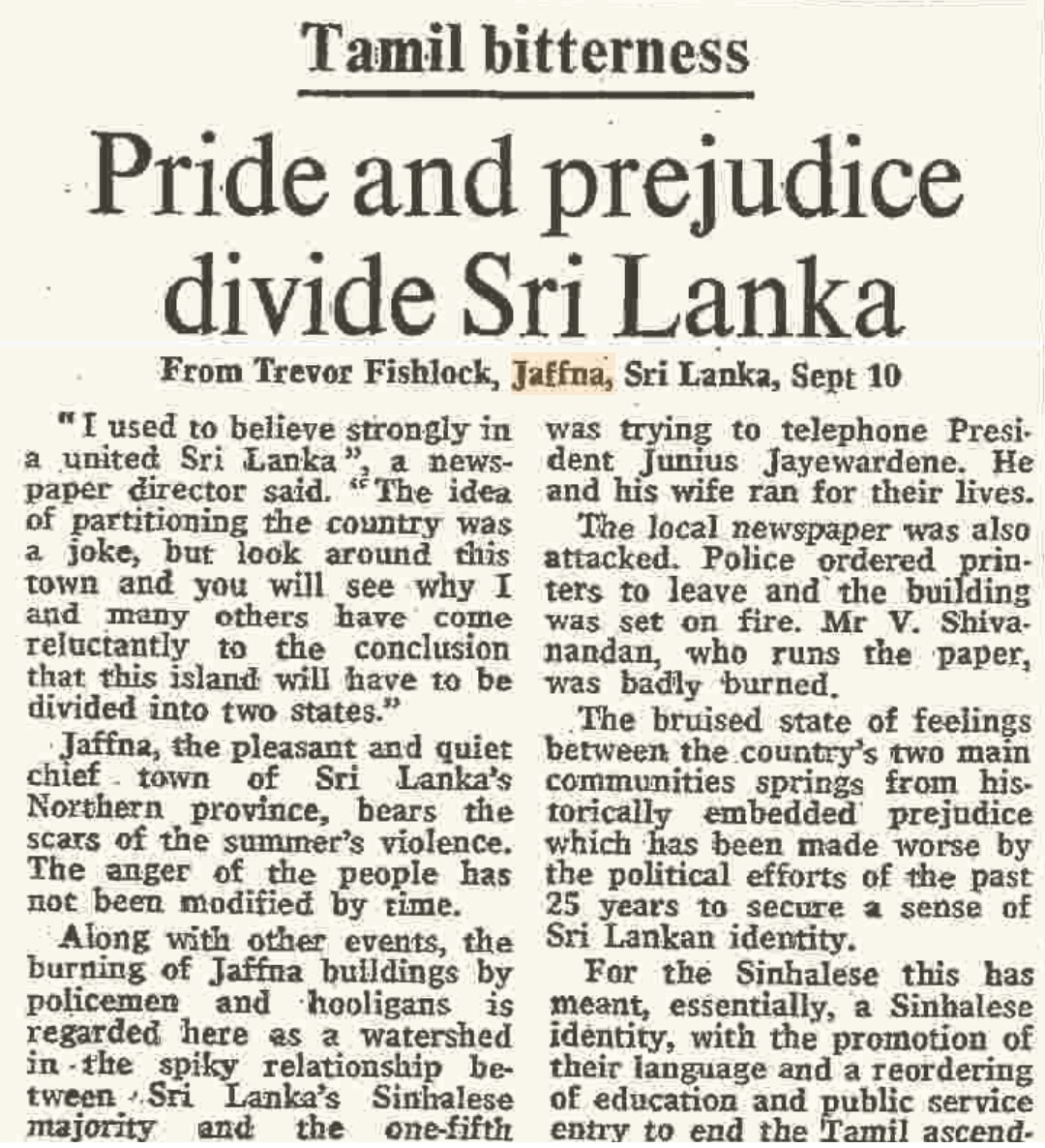
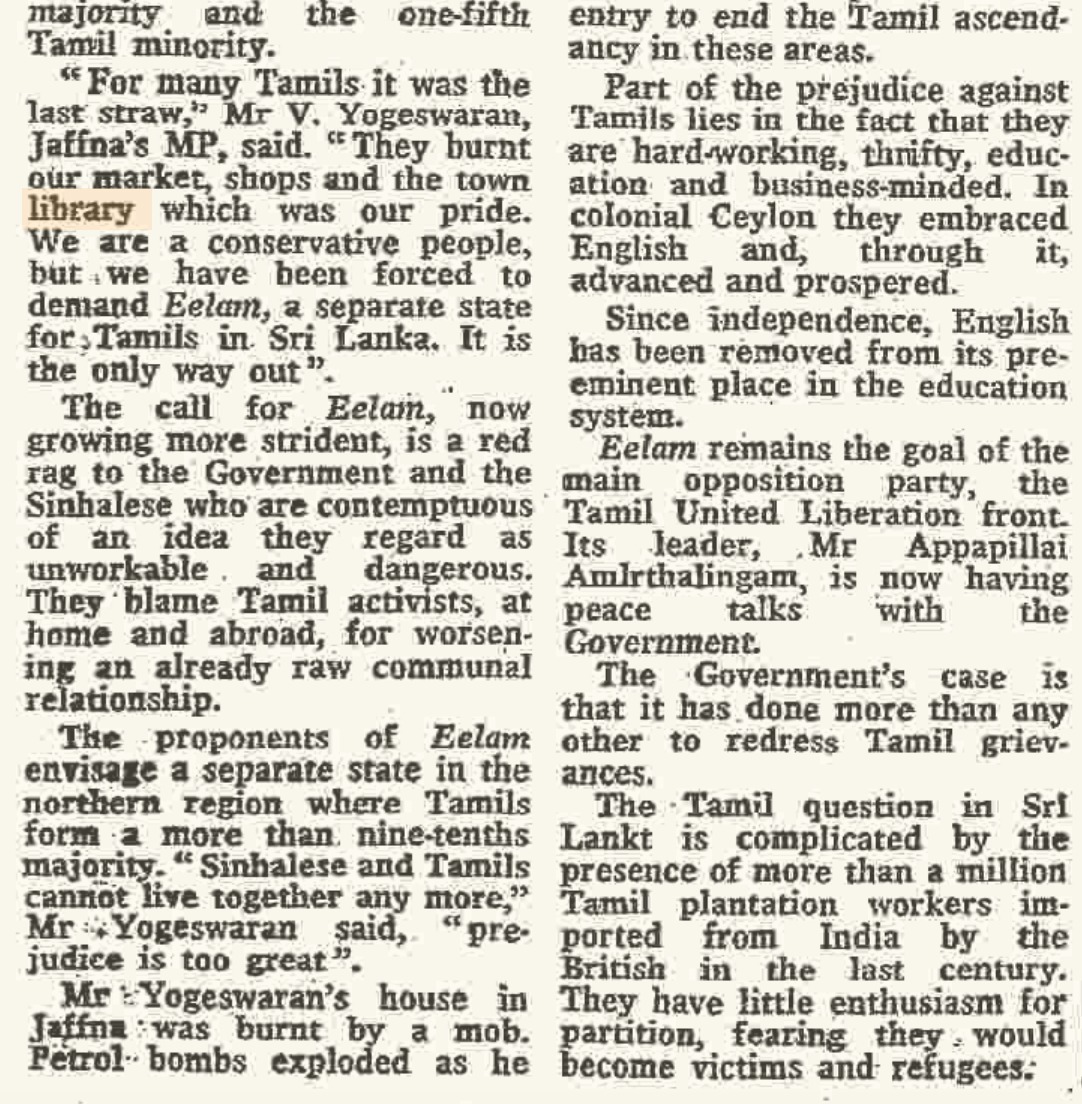
From the Times of London
We need your support
Sri Lanka is one of the most dangerous places in the world to be a journalist. Tamil journalists are particularly at threat, with at least 41 media workers known to have been killed by the Sri Lankan state or its paramilitaries during and after the armed conflict.
Despite the risks, our team on the ground remain committed to providing detailed and accurate reporting of developments in the Tamil homeland, across the island and around the world, as well as providing expert analysis and insight from the Tamil point of view
We need your support in keeping our journalism going. Support our work today.
For more ways to donate visit https://donate.tamilguardian.com.

